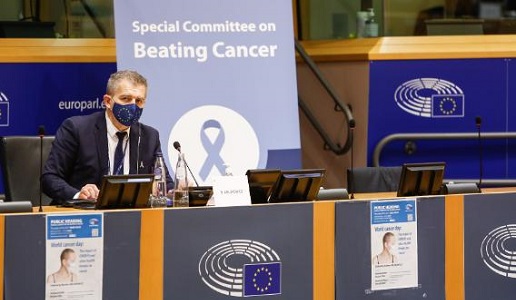Wine is not just alcohol

The European Union’s anti-cancer plan has placed the future of the wine world at risk. The BECA commission has adopted its position on the dangers of alcohol without taking into account the fact that wine is simply not just an alcoholic beverage but also has to do with culture, tradition and the identity of territories. It is part of a lifestyle that has allowed Italians to have one of the highest lifespans in the world.
“There is no safe level of alcohol consumption and this should be taken into consideration in framing EU cancer prevention policies”. This blunt statement was included in the (non-binding) resolution included in the anti-cancer plan from the BECA (Battling Cancer) Commission of the European Parliament presented December 10 and which has sparked concern and protests throughout the world of wine.
The reasons for the protests were summed up in a statement from the EU’s wine sector association CEEV that underscored how the plan “does not take into account life style and does not take into consideration all existing scientific studies and thus cannot serve as the only basis to draw conclusions in regard to alcohol consumption and on its cancer risks”.

The absolute demonization of alcohol does not take into consideration the difference, equally recognized, between binge-drinking, especially in regard to the consumption of hard liquor, and the responsible consumption of wine and beer. The moderate consumption of alcohol when it takes place during meals is part of a healthy lifestyle, which is associated with the Mediterranean Diet that even the BECA Commission has recognized is healthy.
We still do not know whether these “suggestions” will be adopted by the EU and must wait for a couple of months to find out (the EP will vote on the plan during a plenary session between January and February). Nevertheless, the situation is very disturbing. To brand any and all alcohol consumption as harmful, without making a distinction between use and abuse, and to assimilate wine consumption with smoking risks provoking a catastrophe for the Italian economy, considering the fact that this sector employs 1.3 million people and that the value of wine exports this year should exceed 7 billion euros.
Among the possible negative consequences are:
*The obligation of adding a health warning label to the bottle to inform consumers on the dangers of alcohol (similar to the one for cigarettes today).
*Increasing taxes on alcohol products.
*Banning alcohol companies from sponsoring sports events.
*Banning advertising that encourages alcohol consumption.
*Revising advertising policies for alcohol products, including wine.
All this, according to the Coldiretti farmers’ union, “would discourage wine consumption by almost one out of four Italians (23%), who would stop drinking or consume less”.
We by all means do not wish to deny that the excessive consumption of alcohol is harmful to one’s health but – as the Latin saying goes – in medio stat virtus. It appears clear that the experts at the BECA Commission, who are rightfully focused on battling cancer, have decided to go about it with an axe rather than contemplate the question with calm, as our ancestors did.

 Italiano
Italiano










